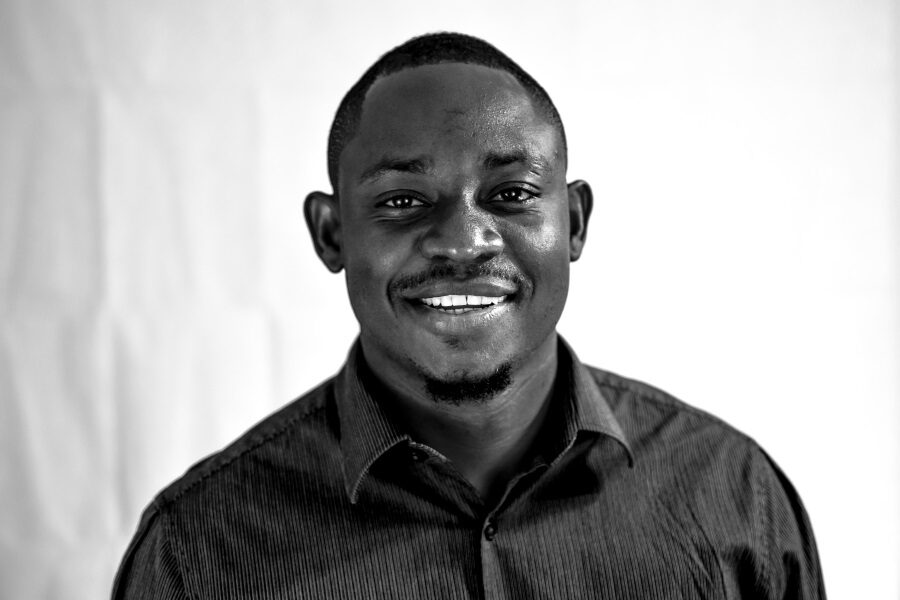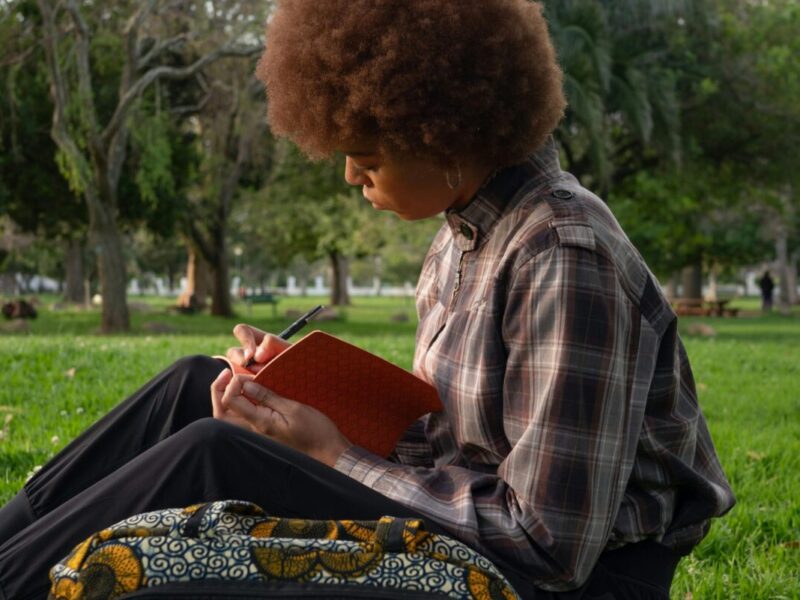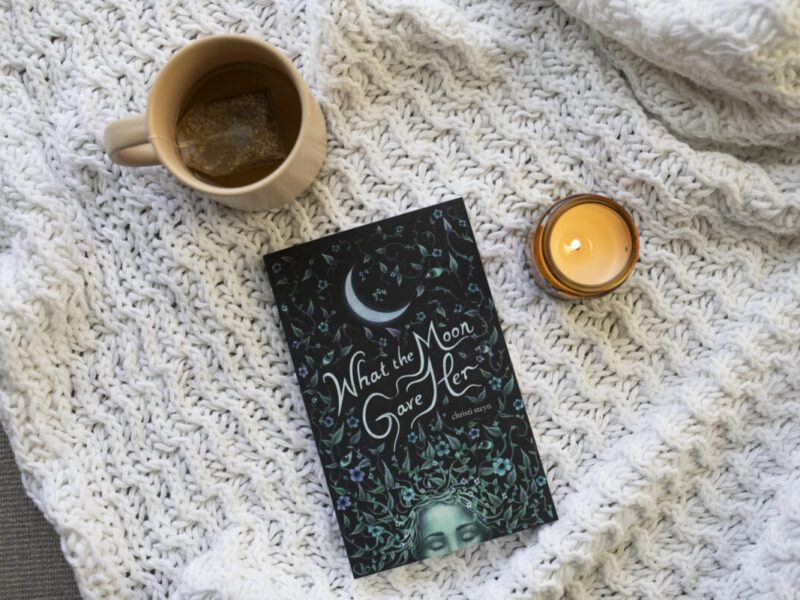7 Questions With HER III Author Pierre Alex Jeanty
Pierre Alex Jeanty has made a career of writing simple yet striking poetry about relationships—poetry meant to connect with people of every gender and at every stage of singlehood and romance. The third and final installment in his popular HER trilogy, HER III, released April 4. Like the other collections in this aptly named series, HER III is a testament to the vulnerability and strength of women. Pierre Alex Jeanty shared his writing process, his opinion on what makes poetry so powerful, and how to turn daily life into inspiration.
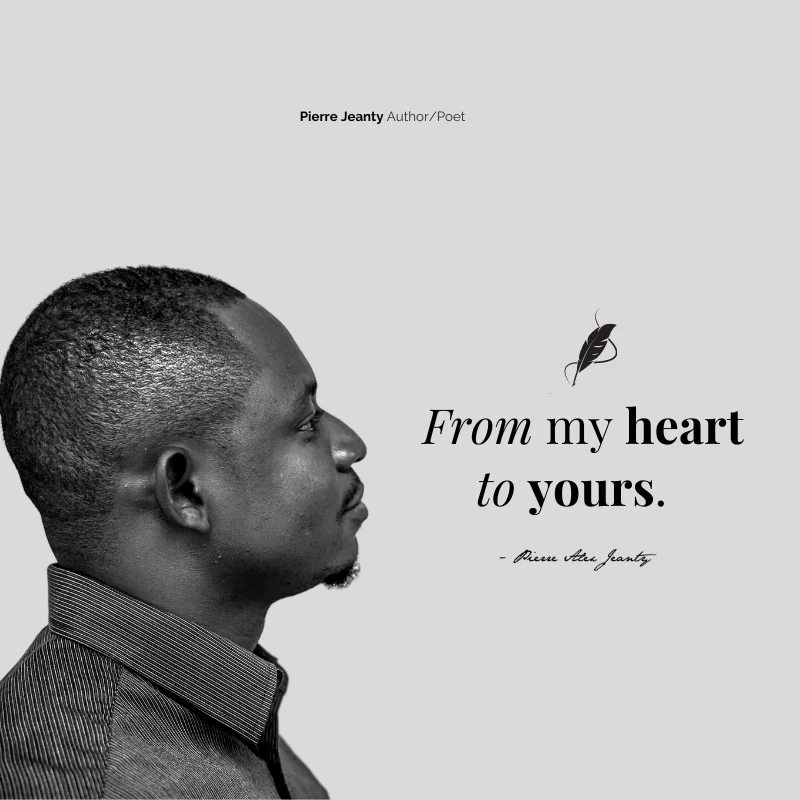
Kara Lewis (KL): This is the third volume of your HER poetry series. How does this collection continue the themes of those earlier releases, and in what ways does it expand on them?
Pierre Alex Jeanty (PAJ): This collection focuses more on maturity, acceptance of change, and intimacy. The idea is to highlight more of a mature phase of a woman that men sometimes don’t understand or flee from. Intimacy, however, is the main topic that I feel stands out in this volume.
KL: In the intro of this collection, you describe the HER series as a transformative read for both women and men. What messages do you hope to impart to these two distinct audiences?
PAJ: The idea was to set the record straight as to why HER was created and my intent when it comes to both men and women reading it. Over the years, the intent has been misinterpreted by some. This needs to be said in an environment where more content is being put out for women or about women, yet the intent of those putting out content is often unclear or disingenuous. Expressing that this was first created for men and never meant to tell women how to feel was important.
KL: You also say you don’t consider yourself a great poet, but instead a “great observer.” How do you turn these observations into poetry, and what advice would you give to aspiring poets about how to observe the inspirational images and themes in their daily lives?
PAJ: This was another attempt to address the criticism. As someone who is labeled a modern poet, I feel like many of those who study poetry academically had too much to say about the simplicity of my work and how poetic it is. To help the critics consume this I guess a bit better, I give them this warning. This warning also helps the readers accept the book and see my genuine intent. I love writing deeper poetry on the side and even poetry that rhymes and can be dissected. But this series is for those looking for micro-poetry, those who want relationships to be spoken about, those who want their heart on display. Those people look beyond the simplicity and embrace these poems and their message.
As for advice to other authors on how to do the same, document what’s around you. Let your poems be things you observe. Every moment can be meaningful to someone else.
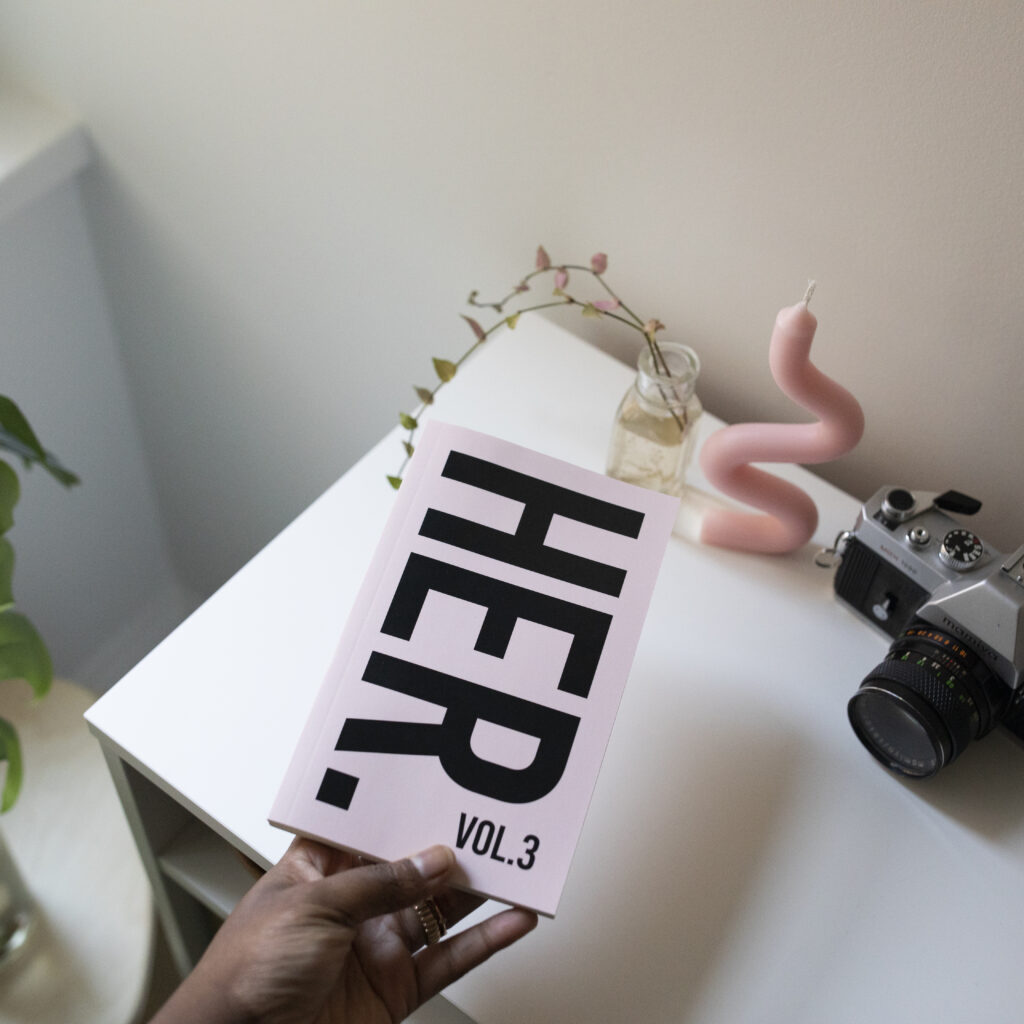
KL: In your opinion, what makes poetry such an effective form through which to examine relationships?
PAJ: It’s effective because it’s words of the heart that aren’t often spoken. My poetry itself tries to express things in many women’s hearts that need to find their way into men’s hearts. With communication being a tough thing for many, even more so in relationships, poetry can bridge the gap.
KL: The arc of this book describes a woman who has gone through an intense transformation, from codependent to independent and from insecure to deeply confident. How do you approach illustrating personal shifts and changes through poetry?
PAJ: My wife is often my muse. I listened to her describe her codependent phase, to seeing some of her independent phase, to now watching her in our relationship. I watched her transform from a woman wanting to believe in a good man to learning how to accept and receive love from a good man, to now being totally in love and feeling confident about love. This book is full of that—it’s full of her and it’s full of other experiences of those I watched either find themselves or find better relationships. I focused on sharing those experiences with the hope that men see it. I also hope women know that they aren’t alone and that their desires are attainable.
View this post on Instagram
KL: This book tries to get into the headspace of a woman. How did you approach this challenge? Have women in your life provided perspective and education?
PAJ: I mention the word “observation” because I see a lot of women in different parts of their lives—my wife, my sisters, my mother, my nieces, my friends. I have a lot of active women in my life and in my circle. Observing their journey gives me a lot to write about. Conversations with them also give me a lot to share.
KL: What’s next for you creatively?
PAJ: I want to continue my quest that focuses on bridging the gap. Write more for men, write more about love and healthy relationships, and also write more about inspiration outside of love. I even want to explore other genres, like a novel.
Order HER III here.

